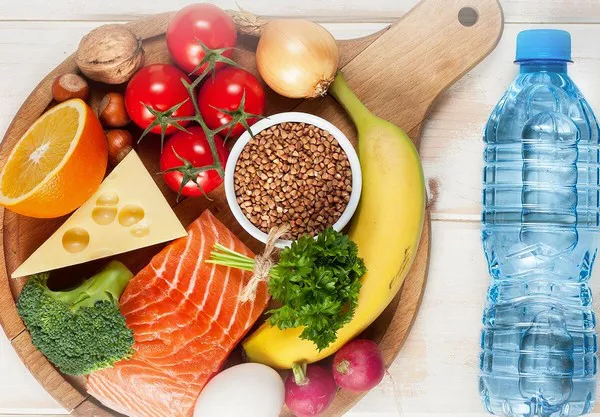Protein is an essential macronutrient that plays a crucial role in the growth, repair, and maintenance of our body tissues. It is often hailed as a key component of a healthy diet, with many people consciously increasing their protein intake in the pursuit of better health and fitness. However, like any nutrient, too much of a good thing can have adverse effects. In this article, we will explore what happens when you eat too much protein and the potential consequences it can have on your overall health.
The Role of Protein in the Body
Before delving into the effects of excessive protein consumption, let’s first understand the vital role that protein plays in the human body. Protein is composed of amino acids, which are the building blocks for various tissues, enzymes, hormones, and immune system components. Without an adequate supply of protein, our bodies would be unable to function optimally.
Protein is involved in various essential functions, including muscle building and repair, maintaining healthy skin and hair, supporting the immune system, and aiding in the production of enzymes and hormones. It’s clear that protein is vital for our well-being, but consuming too much of it can lead to several problems.
The Dangers of Excessive Protein Intake
1. Digestive Issues: Excessive protein consumption can put a strain on your digestive system. When you eat more protein than your body needs, it can lead to digestive discomfort, such as bloating, gas, and constipation. The digestive enzymes required to break down proteins may become overwhelmed, causing these issues.
2. Kidney Strain: One of the most significant concerns associated with excessive protein intake is the potential strain it can put on your kidneys. The kidneys are responsible for filtering waste products from the blood, including the byproducts of protein metabolism, such as urea and ammonia. Consuming too much protein can lead to increased levels of these waste products, potentially overworking the kidneys and causing kidney stress or damage over time.
3. Dehydration: High protein diets often require increased water intake to help the kidneys process and eliminate excess waste products. If you don’t adequately hydrate while consuming excessive protein, you may risk becoming dehydrated, which can lead to a range of health problems.
4. Bone Health: Surprisingly, excessive protein intake may have negative effects on bone health. Some studies suggest that high protein diets can lead to increased calcium excretion in the urine, potentially weakening bones over time. This can be of particular concern for individuals who do not consume enough calcium-rich foods to offset this loss.
5. Weight Gain: While protein is often associated with weight loss and muscle building, excessive protein consumption can lead to weight gain. Protein contains calories, and if you consume more protein than your body needs, those extra calories can be stored as fat. Additionally, some high-protein foods may also be high in calories and unhealthy fats, further contributing to weight gain if consumed in excess.
6. Nutrient Imbalances: Focusing too heavily on protein consumption can sometimes lead to nutrient imbalances. A diet overly concentrated on protein may neglect other essential nutrients, such as carbohydrates, fiber, vitamins, and minerals. This can result in deficiencies that can negatively impact your health.
7. Risk of Chronic Diseases: Some research suggests that diets excessively high in animal-based protein sources, particularly red and processed meats, may be associated with an increased risk of chronic diseases like heart disease, certain types of cancer, and diabetes. These risks may be attributed to the saturated fats and other compounds often found in these protein sources.
8. Bad Breath: An unusual but noticeable side effect of excessive protein consumption is bad breath. When your body metabolizes protein, it produces ammonia as a byproduct, which can be excreted through your breath, leading to unpleasant odor.
Finding the Right Balance
It’s evident that consuming too much protein can have adverse effects on your health, but it’s essential to emphasize that not all protein intake is equal. The source and quality of the protein you consume matter just as much as the quantity.
To strike a healthy balance, consider the following tips:
Choose Lean Protein Sources: Opt for lean protein sources like poultry, fish, beans, legumes, and tofu. These options are generally lower in saturated fats and can help you meet your protein needs without excessive calories or unhealthy fats.
Stay Hydrated: Ensure you drink enough water to support your kidneys’ ability to process excess protein byproducts.
Balance Your Diet: Maintain a well-rounded diet that includes a variety of nutrient-rich foods, including fruits, vegetables, whole grains, and healthy fats. This will help prevent nutrient imbalances.
Monitor Your Intake: Be mindful of your protein intake and aim to meet your specific needs based on factors such as age, sex, activity level, and overall health goals.
Consult a Registered Dietitian: If you’re unsure about your protein needs or have specific dietary concerns, consider consulting a registered dietitian who can provide personalized guidance.
Conclusion
Protein is undoubtedly a crucial component of a healthy diet, but it’s important to strike a balance. Excessive protein consumption can lead to various health issues, including digestive problems, kidney strain, dehydration, and nutrient imbalances. To maintain optimal health, focus on consuming a balanced diet that includes an appropriate amount of protein from lean and diverse sources. Remember that individual protein needs can vary, so consult with a healthcare professional or registered dietitian to determine the right protein intake for you. In this way, you can enjoy the benefits of protein without the potential risks associated with overconsumption.
[inline_related_posts title=”You Might Be Interested In” title_align=”left” style=”list” number=”6″ align=”none” ids=”2832,2825,2753″ by=”categories” orderby=”rand” order=”DESC” hide_thumb=”no” thumb_right=”no” views=”no” date=”yes” grid_columns=”2″ post_type=”” tax=””]



































